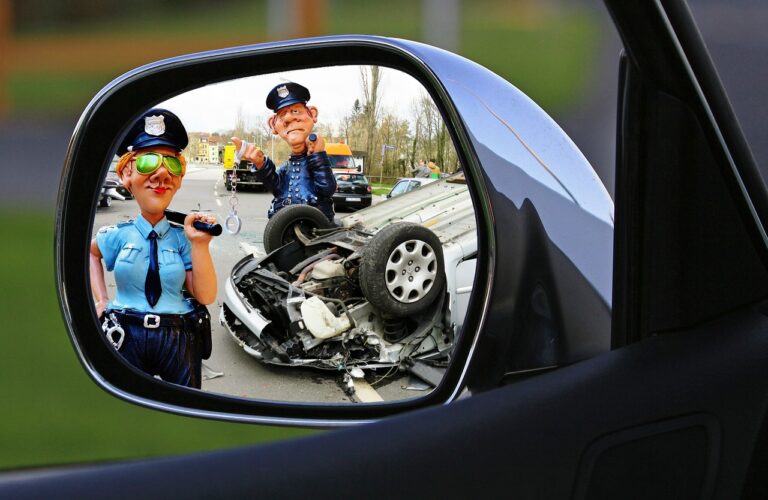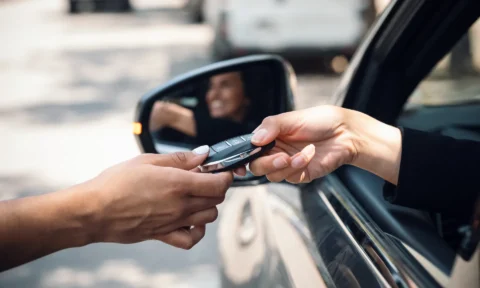Driving offers freedom and convenience, but it also comes with great responsibility. Every time we get behind the wheel, we’re expected to follow traffic laws designed to keep everyone on the road safe. However, even the most experienced drivers can sometimes overlook or misunderstand certain rules. Understanding traffic offenses—what they are, how they’re classified, and their consequences—is essential to becoming a responsible and law-abiding driver.
What Are Traffic Offenses?
Traffic offenses are violations of the rules and regulations that govern how vehicles and pedestrians use the road. These laws exist to maintain order, prevent accidents, and protect lives. Offenses can range from minor infractions, such as parking violations, to serious crimes like driving under the influence (DUI) or reckless driving.
In general, traffic offenses fall into two main categories: non-moving violations and moving violations.
Types of Traffic Offenses
1. Non-Moving Violations
These occur when a vehicle is stationary. Common examples include:
- Parking in a no-parking zone
- Expired vehicle registration or inspection
- Broken tail lights or missing license plates
While these offenses are usually minor, they can lead to fines or penalties if left unresolved. Repeated violations may also affect your vehicle registration or insurance status.
2. Moving Violations
These happen while the vehicle is in motion and tend to carry more serious consequences. Common examples include:
- Speeding
- Running a red light or stop sign
- Failing to yield or signal properly
- Distracted driving (such as using a mobile phone behind the wheel)
- Reckless or aggressive driving
- Driving under the influence (DUI/DWI)
Moving violations can result in fines, license suspension, higher insurance premiums, or even jail time, depending on the severity.
Severity Levels of Traffic Offenses
Not all traffic offenses are treated equally. They are generally classified into three categories based on their seriousness:
1. Infractions:
These are the most common and least severe. Infractions typically result in fines or points on your driving record but do not lead to jail time. Examples include minor speeding or failing to wear a seatbelt.
2. Misdemeanors:
These are more serious and may result in higher fines, license suspension, or even short-term imprisonment. Examples include driving without a valid license or reckless driving that endangers others.
3. Felonies:
Felony traffic offenses are the most severe and can lead to long-term imprisonment. Common examples include vehicular manslaughter, repeat DUI offenses, or hit-and-run accidents that result in injury or death.
The Consequences of Traffic Offenses
Even minor traffic offenses can have a lasting impact on your driving record and finances. Here’s what drivers should keep in mind:
- Fines and Fees: Most violations result in monetary penalties that can add up quickly, especially if unpaid.
- License Points: Many jurisdictions use a point system. Accumulating too many points within a certain period can result in license suspension or revocation.
- Insurance Rates: Insurance companies often increase premiums for drivers with multiple violations, viewing them as higher risk.
- Criminal Record: Serious offenses, such as DUI or reckless driving, can lead to a criminal record, which may affect employment and travel opportunities.
- Loss of Driving Privileges: Repeated or severe violations can result in temporary or permanent loss of your driver’s license.
Preventing Traffic Offenses
Avoiding traffic offenses isn’t just about obeying the law—it’s about ensuring the safety of yourself and others. Here are a few practical tips:
- Stay Focused: Avoid distractions like texting, eating, or adjusting controls while driving.
- Follow Speed Limits: They are designed based on road conditions, traffic flow, and safety considerations.
- Keep Your Vehicle Maintained: Ensure your lights, brakes, and tires are in good working condition.
- Know the Laws: Traffic laws can vary by state or country, so familiarize yourself with local regulations.
- Plan Ahead: Give yourself enough time to reach your destination so you’re not tempted to speed or take risks.
What to Do If You’re Charged with a Traffic Offense
If you receive a traffic ticket or citation, it’s important to stay calm and take responsible steps to address the situation. In most cases, you have several options available:
- Pay the Fine: For minor infractions, you can typically resolve the issue by paying the required fine promptly to avoid additional penalties or late fees.
- Contest the Ticket: If you believe the citation was issued in error, you have the right to challenge it in court. Presenting your case with proper documentation and evidence can sometimes lead to reduced penalties or dismissal.
- Seek Legal Assistance: For more serious offenses, such as reckless driving or DUI, consulting with a qualified traffic attorney can help you understand your rights, explore possible defenses, and navigate the legal process effectively.
- Post a Bond in Summit County: In some cases—especially when a court appearance is required—you may need to post a bond to ensure your compliance with court proceedings in Summit County. A bond acts as a financial guarantee that you will appear in court as scheduled. Failure to do so could result in forfeiting the bond and additional legal consequences.
Taking timely and informed action can help you minimize the impact of a traffic offense and prevent more serious issues in the future.
Final Thoughts
Understanding traffic offenses isn’t just about avoiding penalties—it’s about promoting safer roads for everyone. Every time you drive, your actions impact not only your safety but also that of passengers, pedestrians, and other motorists. By following traffic laws, staying alert, and driving responsibly, you can reduce risks and contribute to a safer driving environment.
Being informed is the first step toward responsible driving. Remember: safe driving habits today prevent costly mistakes tomorrow.
Explore More
- A Guide to Senior-Friendly Activities in and Around Medford, Oregon
- The Impact of Construction Site Hazards on Legal Claims

Jared H. Furness is a well-known sports analyst and writer. He is known for his skill in player stats in sports like football, basketball, and baseball. Jared has a sharp eye for detail and a passion for uncovering stories behind the numbers. He is known for writing detailed, SEO-friendly articles. They attract both fans and professionals.
His work often appears on major platforms. It offers detailed breakdowns of player performances, game highlights, and strategic insights. Jared makes complex statistics easy to understand and engaging. His articles, like the Boston College Eagles vs. UVA game analysis and the Arizona Diamondbacks vs. Miami Marlins match, show his talent for mixing data analysis with engaging stories.
Jared is known for producing human-written, plagiarism-free content. His pieces rank well on Google. This helps fans and analysts easily find his expert views on key matchups. Jared H. Furness raises the bar in sports stats journalism. He highlights Bobby Witt Jr.’s amazing plays and key moments in EuroLeague basketball.





